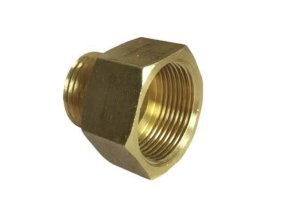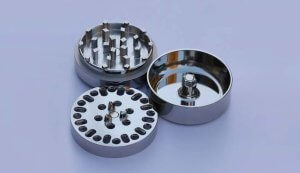Choosing the right CNC machining service provider for stainless steel flanges is crucial to ensure high-quality products, timely delivery, and cost-effectiveness. This guide will help you understand the key factors to consider when selecting a global provider, focusing on technical capabilities, cost, and quality and after-sales service.
1. Technical Capabilities
When selecting a CNC machining service provider, evaluating their technical capabilities is paramount. Look for providers with advanced machinery, such as multi-axis CNC machines, which offer precision and versatility. Consider the following aspects:
- Machinery and Technology: Ensure the provider has state-of-the-art CNC machines capable of handling complex geometries and tight tolerances. Advanced software for CAD/CAM integration is also essential for precision and efficiency.
- Expertise and Experience: Assess the provider’s experience in machining stainless steel flanges. Experienced providers are more likely to deliver high-quality products and overcome technical challenges effectively.
- Production Capacity: Determine if the provider can handle your volume requirements, whether it’s a small batch or large-scale production. Adequate production capacity ensures timely delivery and scalability.
- Customization Capabilities: Check if the provider can offer customized solutions tailored to your specific needs, such as unique designs or special finishes.
2. Cost Considerations
Cost is a critical factor when choosing a CNC machining service provider. However, it’s important to balance cost with quality to avoid compromising on product standards. Consider the following cost-related aspects:
- Transparent Pricing: Look for providers who offer clear and detailed pricing structures. Avoid hidden costs by understanding the breakdown of expenses, including material costs, machining time, and additional services.
- Competitive Rates: Compare quotes from multiple providers to ensure you get competitive rates. However, be cautious of prices that seem too good to be true, as they may indicate compromised quality.
- Cost Efficiency: Assess the provider’s ability to optimize machining processes to reduce waste and increase efficiency. Efficient providers can often offer better rates due to reduced material and labor costs.
- Value-Added Services: Consider providers who offer additional services such as assembly, testing, or surface treatments. These services can add value and reduce the need for multiple suppliers, ultimately lowering overall costs.
3. Quality and After-Sales Service
The quality of the stainless steel flanges and the level of after-sales service are crucial for long-term satisfaction and reliability. Consider the following aspects to ensure high standards:
- Quality Control: Ensure the provider has a robust quality control system in place, including certifications such as ISO 9001. Regular inspections and testing should be part of their manufacturing process to maintain high quality.
- Material Standards: Verify that the provider uses high-grade stainless steel that meets industry standards and specifications. The quality of raw materials directly impacts the durability and performance of the final product.
- After-Sales Support: Evaluate the provider’s after-sales support, including warranty policies, technical support, and responsiveness to issues. A provider with strong after-sales service will address any problems promptly and ensure customer satisfaction.
- Customer Feedback: Research customer reviews and testimonials to gauge the provider’s reputation for quality and service. Positive feedback from other clients can be a strong indicator of reliability and excellence.
Choosing the right CNC machining service provider for stainless steel flanges involves a careful evaluation of technical capabilities, cost, and quality and after-sales service. By considering these factors, you can ensure that you select a provider that meets your specific needs and delivers high-quality products.
Other Articles You Might Enjoy
- What Material Properties Need to Be Considered When CNC Machining Stainless Steel Flanges?
The CNC machining of stainless steel flanges requires a profound understanding of the material's properties to ensure high-quality, precision outcomes. This article delves into the critical material properties that impact…
- Precision CNC Machining of Stainless Steel: Innovations and Best Practices in Aerospace Machining
Introduction: Precision CNC Machining and the Use of Stainless Steel Precision Computer Numerical Control (CNC) machining, a vital technology within the manufacturing industry, uses pre-programmed software to guide machinery towards…
- Stainless Steel vs. Aluminum in CNC Machining: Pros and Cons
CNC Machining: The Role of Stainless Steel and Aluminum Computer Numerical Control (CNC) machining is a groundbreaking method in manufacturing that involves precise computer commands to manipulate and control tools…
- CNC Machining Material Showdown: 304 vs. 316 Stainless Steel
CNC Machining: An Overview And Importance of Material Selection Computer Numerical Control (CNC) machining is a manufacturing process that uses pre-programmed computer software to dictate the movement of factory tools…
- Stainless Steel vs. Aluminum in CNC Machining: Pros and Cons
CNC Machining and the Importance of Material Selection CNC machining, a pivotal manufacturing process in numerous industries, uses pre-programmed computer software to dictate the movement of factory tools and machinery.…
- CNC Machining in the Watchmaking Industry: Stainless Steel vs. Titanium Cases
CNC Machining and its Role in the Watchmaking Industry In the world of horology, CNC machining has proven itself to be an invaluable tool. This modern method allows custom parts…









